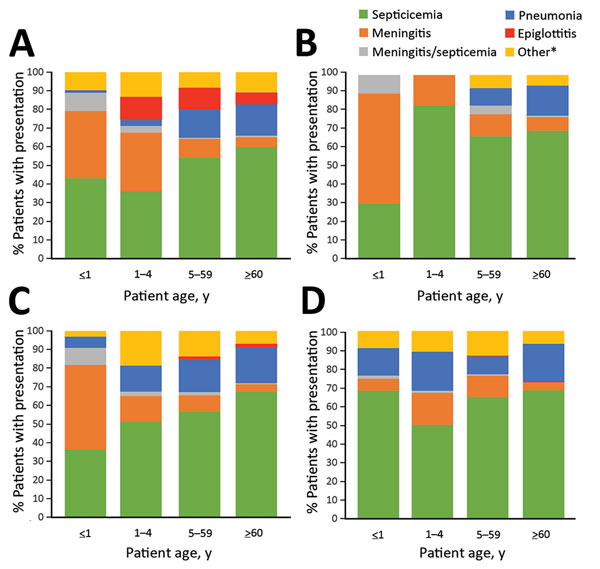Volume 23, Number 3—March 2017
Synopsis
Epidemiology of Invasive Haemophilus influenzae Disease, Europe, 2007–2014
Figure 3

Figure 3. Percentage of cases, by patient age group, in 12 countries in Europe with various clinical presentations of Haemophilus influenzae disease caused by serotypes b (A), e (B), and f (C) and by nontypeable H. influenzae (D), 2007–2014. Cases (N = 5,879) were in Belgium, Cyprus, the Czech Republic, Denmark, Finland, Ireland, Italy, the Netherlands, Norway, Slovenia, Spain, and the United Kingdom. *Refers to cases reported as other, cellulitis, septic arthritis, or osteomyelitis.
1Current affiliation: Hellenic Centre for Disease Control and Prevention, Athens, Greece.
2Current affiliation: Centers for Disease Control and Prevention, Atlanta, Georgia, USA.
3Current affiliation: Tufts University, Boston, Massachusetts, USA.
4Country experts who participated in this study are listed at the end of this article.